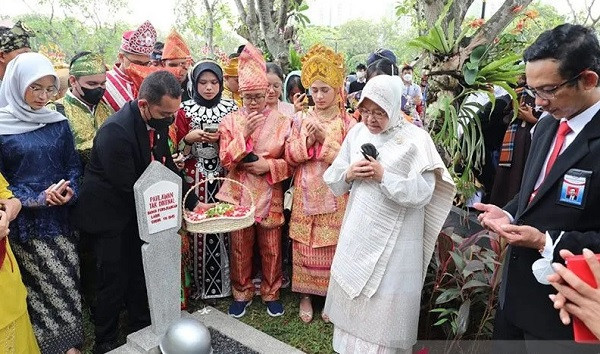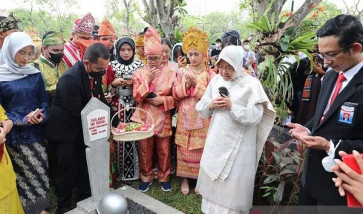Popular Reads
Top Results
Can't find what you're looking for?
View all search resultsPopular Reads
Top Results
Can't find what you're looking for?
View all search resultsWomen heroes are the currency of the world!
The fact that the gallery of heroes in Indonesia is so male-dominated is shocking, but hardly surprising, given how patriarchal Indonesian society has been, and still is.
Change text size
Gift Premium Articles
to Anyone
“Money makes the world go round,” they say. But so do heroes, as well as women of course.
So why are there so few images of women on bank notes? The Indonesian rupiah has denominations of 100,000, 50,000, 20,000, 10,000, 5,000, 2,000 and 1,000, and all but one are graced with images of male heroes. The only woman to make it onto an Indonesian banknote, and it is on the smallest denomination, the 1000 rupiah, worthless, except as small change, is Tjut Meutia (1870-1910). She was a brave and exceptional Acehnese woman who fought against the Dutch colonial rulers, and was declared a national hero on May 2, 1964.
Every year, since 1959, we celebrate Heroes Day on Nov. 10. I came across three articles on that day, written by women. Two were about the dearth of female heroes, one was about how people “become” heroes. The latter was by Bivitri Susanti, an expert on constitutional law.
Bivitri’s article, “Heroes and Civic Space” (Kompas, Nov. 10), points out that invariably a “hero” is decided upon by those in power, which is why it is usually the government that awards the hero title, usually picked from and by the members of the elite.
In reality, real heroes are not a government product, in fact, they are often invisible and unrecognized. How many of us have our own personal heroes, who unselfishly served or helped us in one critical instance, or continuously throughout our lives?
“Heroes are people who propagate the idea of independence at a time when talking about independence is prohibited”. The red thread, Bivitri points out, heroes fight to defend each other, in order to practice their civic role in a civic space.
The two other pieces were by Ika Ariyani, author at konde.co, an online publication focusing on women and minority rights, and Anugerah Adriansyah, a Voice of America (VOA) journalist. They wrote that there are 185 men, but only 15 women heroes (8 percent) in Indonesia. For Ika, this is proof that women are ignored in history, and that the criteria of identifying heroes is very masculine.



















